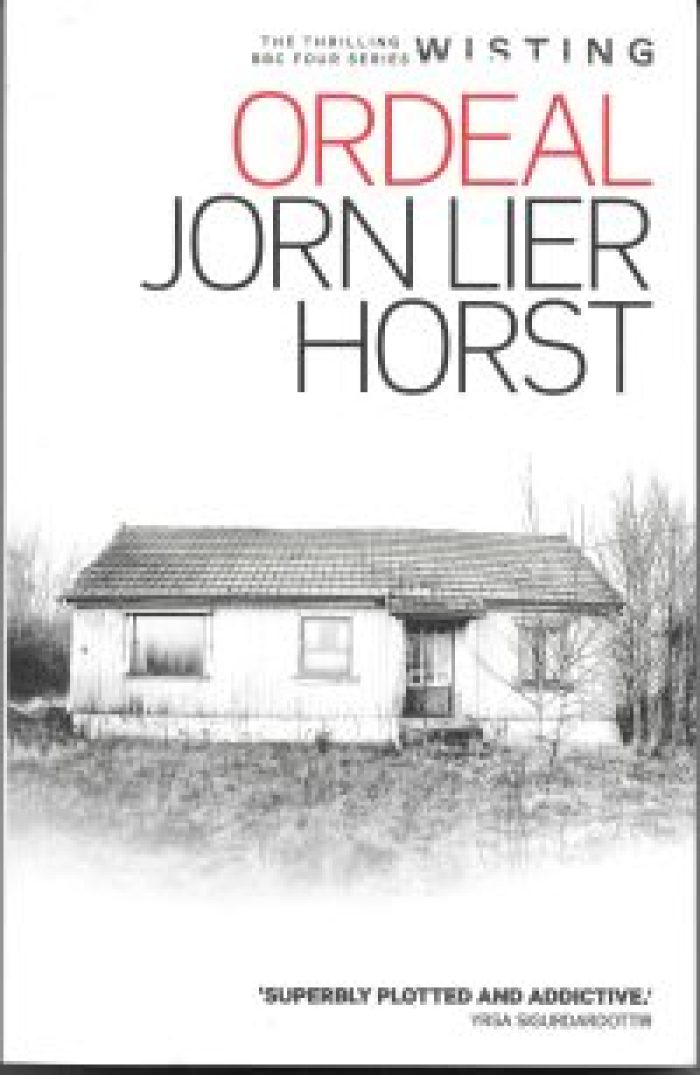The past few weeks have been something of a Nordic escape – a binge into a series of crime novels written by Jorn Lier Horst.
By my reckoning he’s the new Henning Mankell. He makes a worthy successor to that supreme leader of the Nordic Noir brigade who started really catching our attention only a few decades back.
Until then they had remained a secret pleasure to all but those fluent in the authors’ respective tongues.
After all, how many Brits know a word of Swedish, Danish, Norwegian or Finnish? Most of them can hardly squeeze out a mangled version of Thank You when they descend in their summer hordes on our nearest Continental neighbours.
Fortunately this is no longer the case and bookshops are now well stocked with these Sandinavian pleasures.
One slight annoyance is that the English language versions are not always published in the same sequence as the originals. This is very much the case with Jorn Lier Horst.
The chronological order of events in Horsts’ ten-book William Wisting series varies considerably from their order of UK publication. Landmark developments in Wisting’s personal life thus become somewhat confusing.
But that apart, a binge read is easily justified.
Steady plod to thrilling finales
Horst’s books are more police procedurals than high voltage crime dramas. They arouse use of that old slang descriptive “plod”.
A steady and determined march towards the conclusion. Alert to the pitfalls and traps. Step by steady step.
But the stories are no less exciting for that. Wisting is very much a “gently does it” detective. Thoughtful, always cautious and wary.
He picks away at the threads of evidence.
There is no headlong rush unless the urgency of the situation demands it.
Which is sure to occur as soon as the denouement appears on the horizon.
A thrilling finish is guaranteed. The ponderous pace ramps up as Wisting fits the final pieces into the jigsaw confronting him.
Everything he does is underscored by a deep sence of justice and humanity. And a need to throughly understand the complexity of motivations driving a perpetrator to commit what at times are horrific acts of violence.
Such acts rarely seem gratuitous; they are not forcibly woven into the narrative more for effect than justifiable reason. The writing is such that Horst’s taut and economic prose packs a greater punch than the OTT cut by cut descriptions favoured by lesser authors.
It is employed to similar great effect in portraying Wisting himself. Moody, introspective, a family man who has had his share of setbacks and disappointments. Not least with his strong-willed daughter Line – not a name that makes for easy reading in an English text.
Her work as an investigative journalist creates clashes with her father which add another level of frisson to the sparkling dialogue. Yet the bond between them remains strong and makes the novels all the more relateable with their ups and downs.
In The Hunting Dogs both are taken back down the years. Line was a schoolgirl. Wisting was on a murder case which has now been reopened as a miscarriage of justice in which Wisting is being accused of arresting the wrong man.
With Line writing the front page story and her father suspended from duty stripped of all his usual resources, they dig deep into his professional and personal past. A complex tale of deceptions, loyalties and painful secrets unravels piece by painful piece,
All of which results in crime writing at its best.
What is it about the initial H?
 Remember when millions of us were glued weekly to our TV screens pondering the identity of H?
Remember when millions of us were glued weekly to our TV screens pondering the identity of H?
This mysterious presence lurked in the background of episode after episode of Line of Duty.
In what was probably one of the best shows of its genre for many a long year, it was the mysterious H who tantalised with his anonimity.
True we wanted all the other villians to be caught and unmasked for whatever heinous crimes they had committed.
But it was the undercurrent of suspicion that H helped fester among the anti-corruption team at AC-12 that caused the most speculation among viewers.
He (never considered as female) was divisive, disruptive and devious.
And now, as a sideline to this commentary on the books of Jorn Lier Horst, I find I am drowning in a floodtide of H characters.
Among those involved in the drama are Hagland, Hammer and Haber. Then there are Hulkvist and Harald plus journalist Hansen. The reliable Hammer is always on hand and regular appearances are made by Himmel and Heisel. They are joined by Heitmann, Hagen and Horne, helped by informer Hannsson.
A victim’s childhood boyfriend is Hummill.
This is not a definitive list – simply a dawning awareness of a proliferation of so many participants who can be indexed under H.
At times it is confusing. The similarity of names sends the reader backtracking to check which H is which.
There is no obvious reason, simply what looks like an authorial quirk.
Or maybe it is something more Freudian, given that it all flows from a person named Horst.
Best not to let it distract you from the main game regardless of whichever of his books has your current attention.
The slimmest volume, When It Grows Dark, though not the first published in the UK, is the best introduction to Wisting and his origins. From here we learn what shaped him as a relentless fighter for justice and as a dedicated husband and father.
All the better for understanding why he and daughter Line doggedly unravel all that lies beneath the death of a man in front of his TV where he had sat undiscovered for four months.
The result is another beautifully written and woven tale that takes crime writing to another level.
